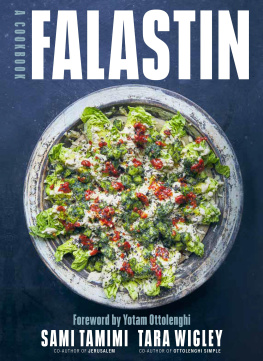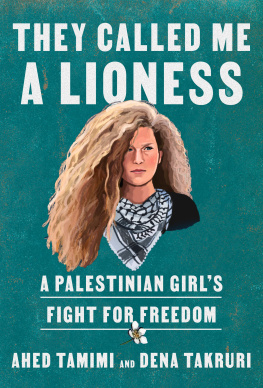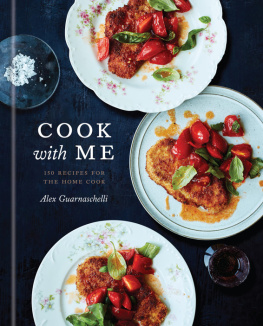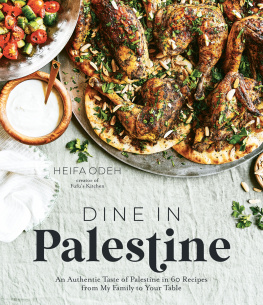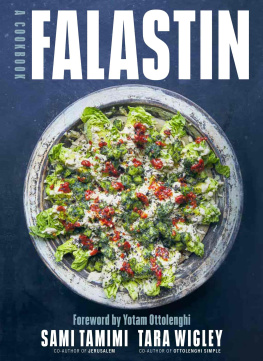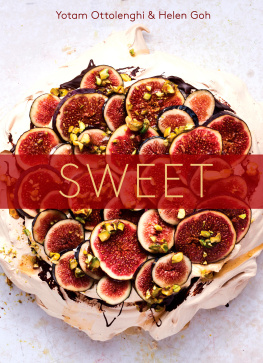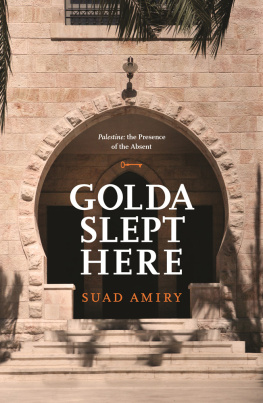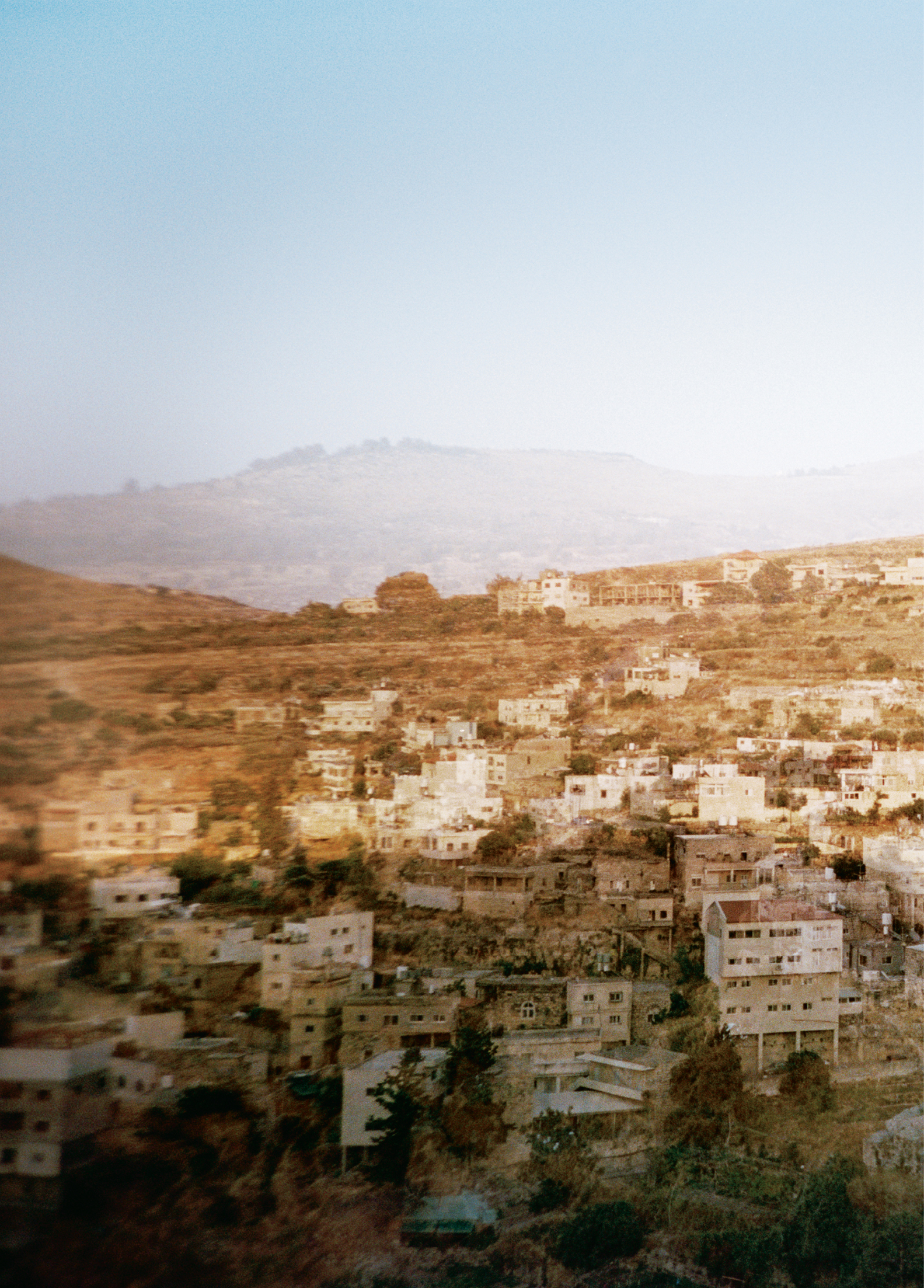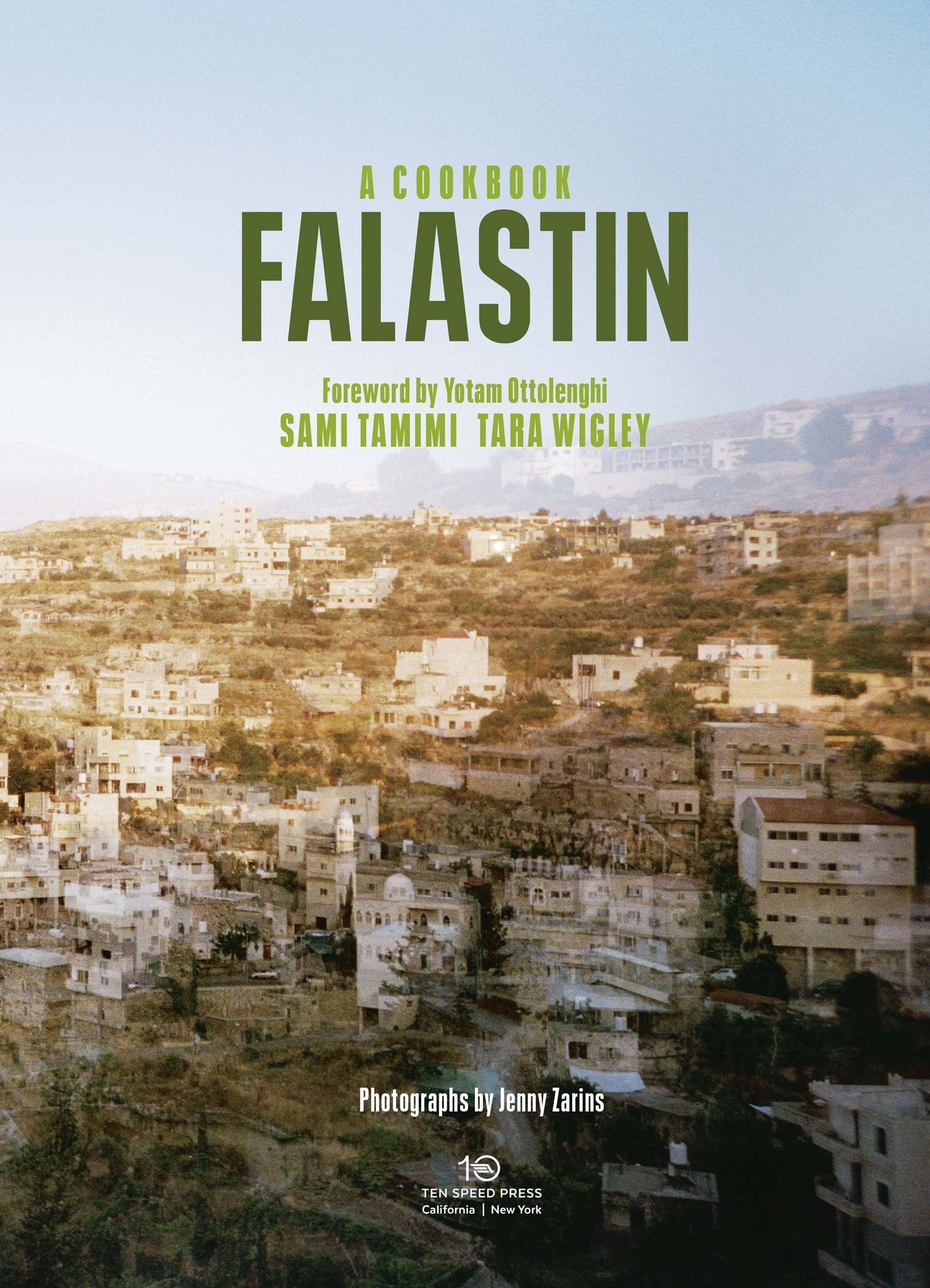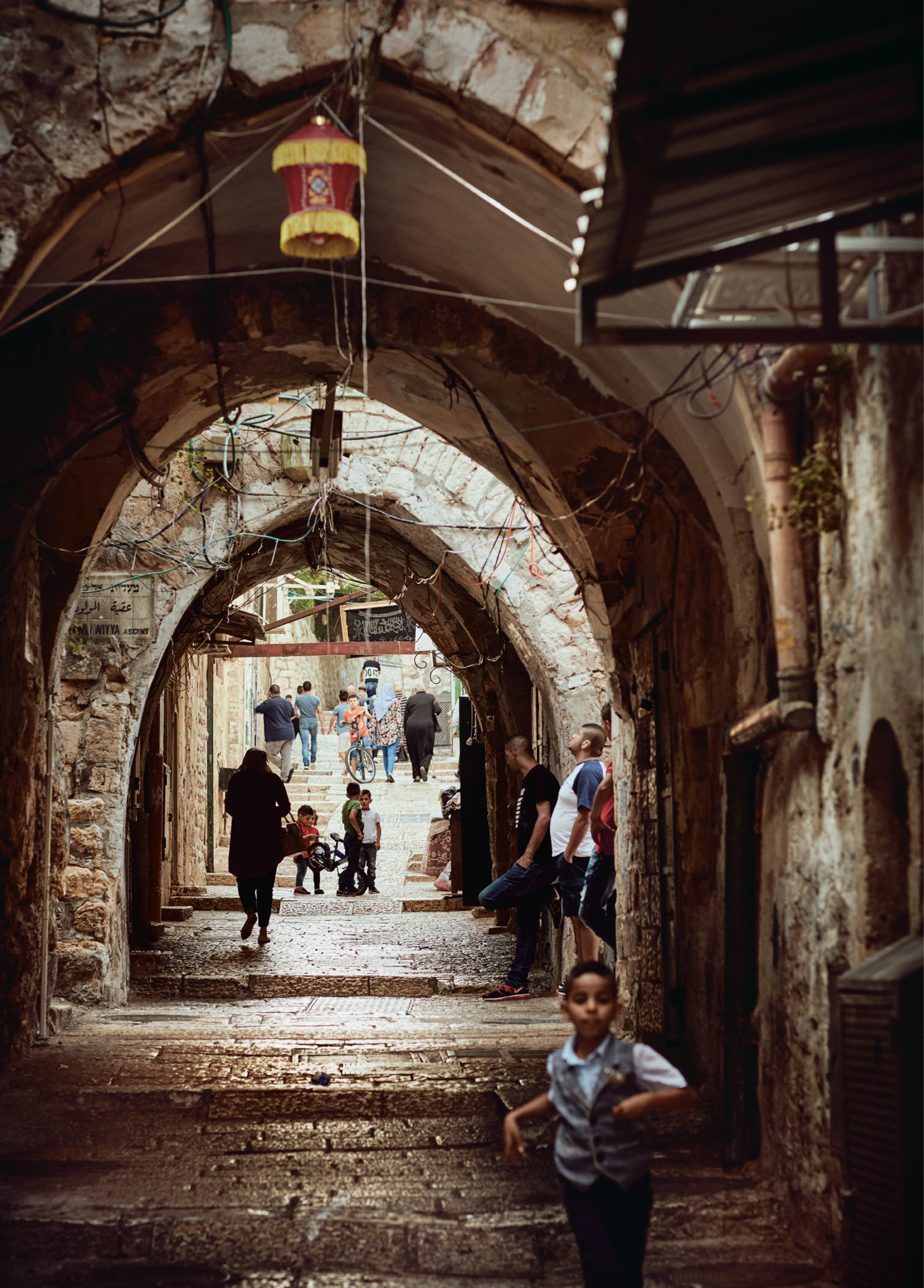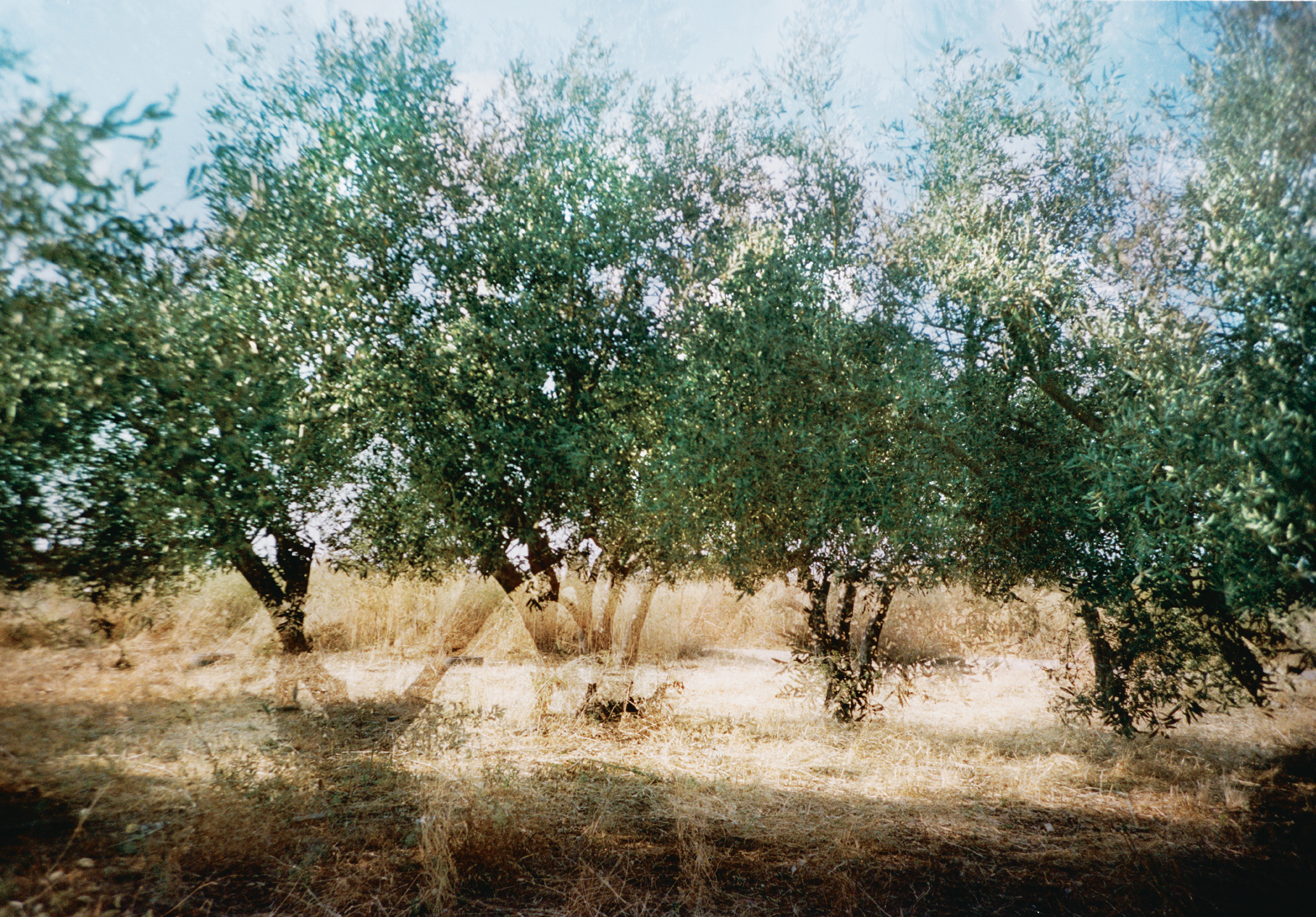Text copyright 2020 by Sami Tamimi and Tara Wrigley.
Photographs copyright 2020 by Jenny Zarins.
Foreword copyright 2020 by Yotam Ottolenghi.
All rights reserved.
Published in the United States by Ten Speed Press, an imprint of Random House, a division of Penguin Random House LLC, New York.
www.tenspeed.com
Ten Speed Press and the Ten Speed Press colophon are registered trademarks of Penguin Random House LLC.
Originally published in Great Britain by Ebury Press, an imprint of Ebury Publishing, Penguin Random House Ltd., London.
Library of Congress Cataloging-in-Publication Data is on file with the publisher.
Hardcover ISBN9780399581731
Ebook ISBN9780399581748
Cover design by Kelly Booth
Prop styling by Wei Tang
rhid_prh_5.5.0_c0_r0
Contents
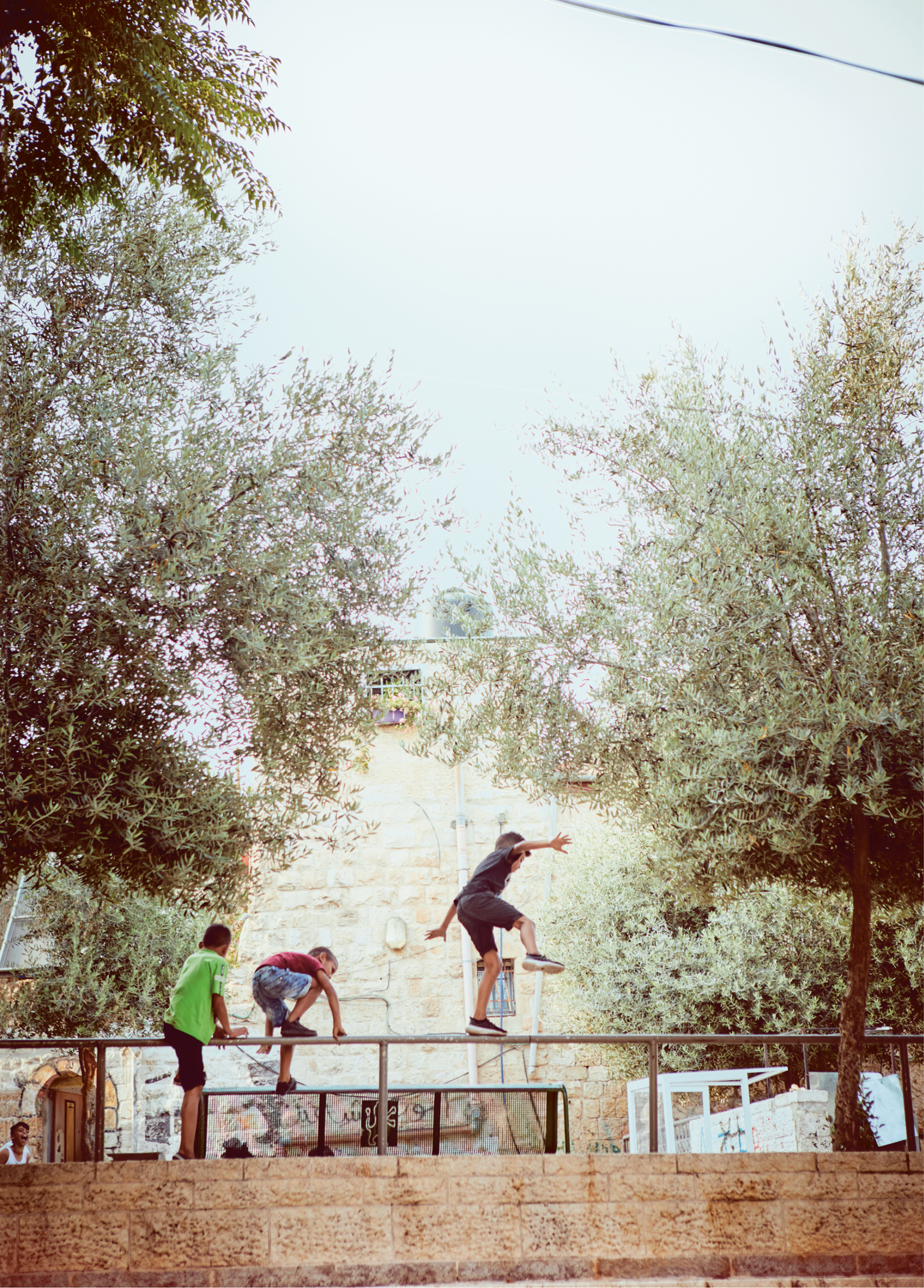
Foreword
I love Palestinian food. I probably love it more than any other cuisine. Thats a tricky thing to say, I know, since I am not a Palestinian. As a Jewish boy from the Jerusalem of the 1970s and 80s, though, I probably had enough kubbeh, bamia, and maamoul for these magnificent foods to insert themselves deep in my young psyche. Not to mention those dishes that were also becoming part of the nascent Israeli cuisinelike falafel, hummus, and tabbouleheither as a direct result of Palestinian influence on our food or through Jewish emigrants from the Arab world settling in the city.
I had been living outside Jerusalem for more than twenty years when I got to revisit all these pleasurable memories while writing Jerusalem with Sami Tamimi in 2012. That book was an unashamed celebration of a rather eclectic set of dishes that Sami and I liked to eat growing up, or that we felt were instrumental to understanding the soul of our city. The job was complicated, politically, since we had to put aside the harsh reality of the occupation of the West Bank. But it was a labor of love: love of ingredients, love of our city, love of our families and childhood memories. Through our friendship, helped by a healthy distance of 3,600 kilometers separating London from Jerusalem, we told a story that was pure deliciousness and joy.
Once Sami and I put our proverbial pens down, though, we both knew that there was another story to tell, and that is the wider story of Palestinian cuisine: a tale of a formidable food nation that gave the region and the rest of the world some of its most beloved foods.
In Falastin, Tara and Sami have picked up the baton where it was left after Jerusalem. Once again, this is a purely delicious affair (you can take my word for it; I was lucky enough to be there when they tested the recipes). It is based on Samis childhood in Palestine and Taras journey into the universe of tahini, zaatar, and precarious savory rice cakes (e.g., maqlubeh). Being the two formidable culinary forces that they are, Tara and Sami are the best guides I can possibly think of to take you into this world, to learn, like me, to enjoy it and absolutely love it.
Yotam Ottolenghi
Introduction
This is a book about Palestineits food, its produce, its history, its future, its people and their voices. It is a book about the common themes that all these elements share, and how Palestine weaves narrative and cooking into the fabric of its identity. The two go hand in hand. Recipes are like stories: events brought to life and shared in the making and telling. They are passed from one person to the next, and in that movement, some details change, others come to the fore, while others will be left by the wayside. And stories are like recipes: a series of individual experiences blended together to create a whole. Where stories and recipes intersect is the nexus, the point, of this book. Rather than telling a story or the story of Palestine, then, were telling lots of stories. These come in the form of both our recipes and the profiles of some of the people and places weve met along the way.
First, however, an outline of what is at the heart of this book: the story of Falastin, the place and its people; the story of Falastin, our book; and the story of Sami, your host, and Tara, your guide.
Falastin: the place and people
There is no letter P in the Arabic language so Falastin is, on the one hand, simply the way Falastinians refer to themselves. On the other hand, thoughand in the Middle East there is always an on the other handthe word is a big one, going far beyond a straightforward label. It is about geography, history, language, land, identity, and culture. Ask a Palestinian what the word Falastin means to them: the answer will rarely be short and will often end with the word home.
For us, for the purposes of our book, Falastin is about all of these things. Geographically, it refers to a small piece of land at the easternmost corner of the Mediterranean Sea where Palestinians have been living for many centuries. This statement is complicated by the fact that this land is also home to other peoples, Israelis; something of which we are very mindful. Our aim with Falastin is to tread the fine line between paying heed to the situation on one hand and remembering, at the same time, that our book is first and foremost a celebration of the food and people of Palestine.
As well as being a geographical label, Falastin is also about identity. For us, it embraces all those who identify as Palestinian, wherever in the world theyre now living. The Palestinian story, post 1948 and with the creation of Israel, could be seen as one of relocation. There are as many different stories as to why a Palestinian is now living where they are living as there are Palestinians. And with more than 12 million Palestinians worldwide, thats a lot.
There are those whove chosen to live abroad and those who have had no choice but to live abroad. There are those who have been displaced closer to home and those who are still living where their parents and grandparents lived before them. Some have known nothing but life in a refugee camp and have never seen the nearby coast, and others have traveled the world freely and have now chosen to return. And then there are those whove never actually been to the country itself but who still strongly identify as Palestinian, through the stories and memories passed down from their Palestinian family.
The people of Palestine go by several different names, depending on whom you ask. Some favor Palestinian, others prefer the people of the north, Arabs of the Negev, Arab refugees, or 48ers. Arab-Israeli, Israeli-Arab, and Palestinian-Israeli are also used. For us, the words Falastin and Falastinian are inclusive, managing to incorporate all these various words at the same time as somehow transcending their often loaded meanings.
Falastin: our book
Falastin is a new kind of Palestinian cookbook: a contemporary collection of more than 110 recipes we hope youll cook, eat, love, and make your own. Its the culmination of Samis lifetime obsession with Middle Eastern food and cookingborn and raised in East Jerusalem, relocated to London in his late twenties, and a founding member of Ottolenghiand Taras decade-long obsession with Middle Eastern food and home cookingraised in London and adopted into the Ottolenghi family.

